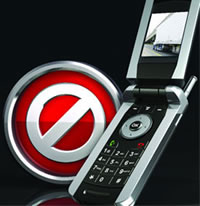
Beginning next month, Louisiana public schools will be required to document all electronic communication that occurs between teachers and students. The new law will even require tracking exchanges initiated by students to teachers via personal devices the schools don’t own.
This first-of-its-kind state law is intended to improve student safety by holding educators accountable for teacher-student communication, but many educators fear it will have a chilling effect on such communication outside of school.
According to the law–stemming from legislation by state Rep. Frank Hoffman, R-West Monroe–Louisiana public schools must develop and implement policies that comply with the measure by Nov. 15. These policies must:
– Define electronic communication;
– Require that “all electronic communication by [a school] employee … to a student” use only “a means provided by or otherwise made available by the school system for this purpose,” and any other communication not school-approved must occur only with a member of that student’s immediate family (and this must be authorized by the school board);
– Specify that any communication to a student from a school employee, or from a student to an employee using means outside of the ones provided by the school, must be reported by the teacher, and records must be kept of the communication for a period of at least one year;
– Specify the disciplinary action to be taken in case of a failure to comply;
– Provide a means for reporting and investigating any failure to comply, including reporting the case to the police;
– Provide a means to inform all employees of the new policies; and
– Inform the student’s guardians that they may choose not to have their child contacted by a school employee unless the communication is directly related to the child’s education services and is sent to more than one student in the school.
The measure also states that no local public school, city, parish board, or member of the board shall be “civilly liable for any electronic communication by an employee to a student that is prohibited” in the law.
In summation, the law states that school districts must monitor employee-student communication that occurs via eMail, text messaging, online social networks, cell phone, landline telephone, and even fax transmissions.
To show how the law might work, Hoffman gave this example to the local newspaper Houma Today: “There may be a need for a baseball coach to text his students that a game has been changed. There’s nothing wrong with that. But if he’s doing it with his own cell phone, he needs to document it.”
School boards across Louisiana have begun to rewrite their electronic communication policies to comply with the law, but many educators are worried about the effects it will have on student-teacher communication.
For example, because the law requires that teachers use only school-provided communications channels, and because many teachers have their own personal web sites, students might not have access to as many resources as before, critics fear.
Some schools in Louisiana, such as Knowledge Is Power Program (KIPP) schools, give their teachers cell phones “with the express intent of allowing students to contact teachers after school hours for help with homework and other school-related questions,” said Wayne Free, director of instructional advocacy for the Louisiana Education Association, the state’s largest teachers union. “I believe this policy is problematic with the new law.”
The law places a burden of proof “on all those dedicated teachers who will have to think twice before contacting a student or accepting contact from a student outside of the school-approved systems,” Free added. “Those few who would act inappropriately will still act inappropriately and not report the contact. There are laws that deal with inappropriate student contact, and I’m not sure [this legislation] will deal any more effectively with such contact than current laws.”
He concluded: “A law which places the burden on the innocent while not effectively policing the guilty… well, it shouldn’t be a law.”
Many outside observers agree.
“The law seems like a major restriction on a teacher’s freedom,” said Chris Clementi, a middle school computer teacher in Colorado and Google-certified educator. “Teachers genuinely care about students, or we wouldn’t be in the profession. I have some of my current and former students on Facebook, and I would never [post] anything inappropriate. … I often use Facebook as an educational tool, reminding students to be careful what they say online, et cetera. I do think I would look for another job if our board was so stifling.”
“You don’t use a bazooka to swat a fly,” said Marc Liebman, superintendent of the Berryessa Union School District in San Jose, Calif. “This is a misguided attempt to protect whomever the legislature believed they were protecting.”
Hoffman said the law’s purpose is to head off potential problems before they start.
“As with most laws, most people don’t break them; but for the few that do, the laws are necessary,” he told eSchool News. “The bill in no way restricts the use of technology or student-teacher interaction. … The fact that an electronic communication has been documented does not indicate a problem exists; it simply documents the communication. In many cases, [this documentation] may serve as a protection for the school employee.”
Many Louisiana school administrators say the measure is flexible enough not to cause problems.
“It’s just an added layer of protection for employees and for kids,” Philip Martin, superintendent of the Terrebonne Parish Schools, told the Houma Today. “It’s designed to protect children, so how can you argue with that?”
Link:
- #4: 25 education trends for 2018 - December 26, 2018
- Video of the Week: Dealing with digital distraction in the classroom - February 23, 2018
- Secrets from the library lines: 5 ways schools can boost digital engagement - January 2, 2018

